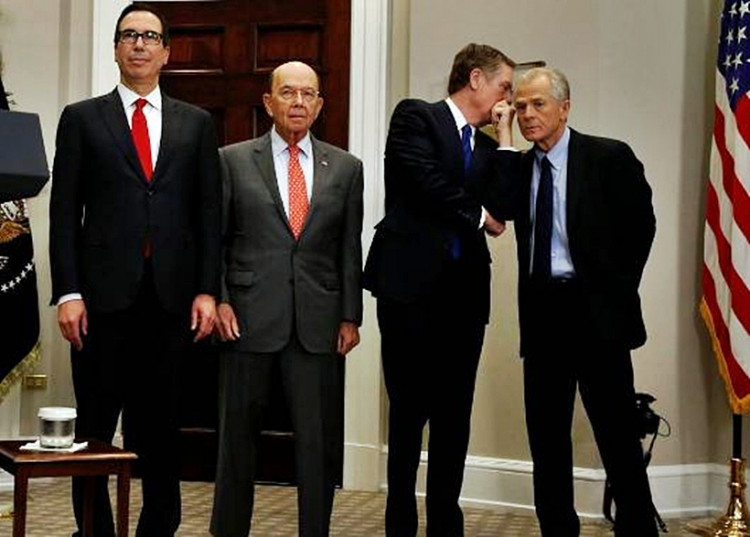The Trump administration is again resorting to a tried and true tactic to cover-up the lack of any significant progress in the ongoing talks with China to prevent tougher U.S. tariffs from taking effect -- mislead.
U.S. Treasury Secretary Steven Mnuchin, who headed the U.S. negotiating team that's just ended two-days of talks with the Chinese in Beijing, tweeted both sides had held "productive meetings" but without giving any specifics.
Analysts pointed out Mnuchin, strangely, didn't elaborate on the discussions he and U.S. Trade Representative Robert Lighthizer had with Chinese Vice Premier Liu He, who is also a top economic advisor to President Xi Jinping. Any positive outcome would have been immediately shared or hinted at.
Analysts also noted that Lighthizer and Mnuchin left their Beijing hotel on Friday without taking questions from reporters, a clear indication they had nothing good to say and that these new talks had failed to attain any positive results.
After the talks ended today, neither country revealed any details on how both sides intended to de-escalate Trump's tariff war that has kept battering financial markets and disrupted manufacturing supply chains worldwide.
U.S. tariffs on $200 billion worth of imports from China will increase to 25 percent from 10 percent on March 2 if no deal is reached by March 1. The Trump administration has kept demanding China undertake structural reforms in its economy that will be to its liking; stop forced technology transfers and better enforce the intellectual property rights of American firms.
Larry Kudlow, director of the National Economic Council, said the White House had made no such decision on extending the March 1 deadline.
Various media sources are painting a less rosy picture of the talks.
Several sources cited by Reuters said there has been no major progress on meeting the Trump administration's demands. "Stalemate on the important stuff," said one of the sources.
"There's still a lot of distance between parties on structural and enforcement issues," said a second source. I wouldn't quite call it hitting a wall, but it's not a field of dreams either."
Other media reports say both sides trying to reach a memorandum of understanding, which will likely be the only concrete and verifiable result from these failed talks.
Another source told Reuters the White House was "irate" over earlier reports that the Trump administration was considering a 60-day extension to the tariff deadline.
A few days ago, Trump said he could let the deadline for a trade agreement "slide for a little while," but didn't set any specific date for a new deadline. He said he would prefer not to set a new deadline but still expects to meet with President Xi Jinping to close the deal.
Trump's advisers previously told him March 1 was a "hard deadline" now impossible to meet. But Trump for the first time told reporters for the first time a delay was now possible.






